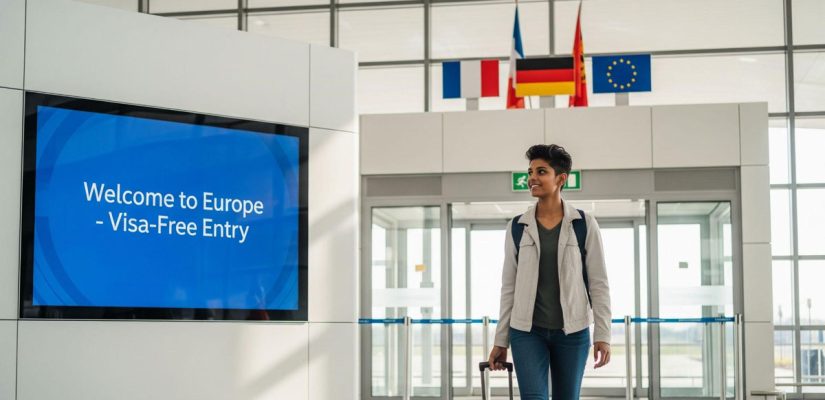
Schengen Visa-Free Travel: 10 Common Questions Explained
Without even obtaining a single stamp, you can travel to 26 European countries—do you know the rules with that?
If you’re thrilled about Schengen Visa-Free Travel for Indians, you’re not alone! The notion of hopping from Paris to Prague without an immigration control sounds brilliant. Before you start packing your backpacks and Googling the best croissants in France, let’s answer the top 10 questions Indians usually ask about this journey without a visa.
1. Where can I travel with this visa-free access?
You can explore 26 countries in the Schengen Area, including:
- France
- Germany
- Italy
- Spain
- Switzerland
- And 21 others
This also includes non-EU nations like Norway and Iceland. But not the UK or Ireland—so don’t show up in London expecting the same perks.
2. How long can I stay for?
You can stay for 90 days in a 180-day period.
Think of it as a backpacker’s punch card; every stay counts, and resets only after 90 days outside Schengen.
3. Can I go in and out of the Schengen Zone?
Yes. Schengen travel is like having a multi-entry ticket to a concert; you can come and go as long as your stays do not exceed 90 days in any way in the rolling 180-day period.
4. What documents do I need?
- A passport (issued within 10 years)
- Valid for at least 3 months after leaving the Schengen Area
A return ticket and hotel bookings help too—border officials love details.
5. Is entry guaranteed?
Not quite. Just because there’s no visa doesn’t mean there’s no screening. Entry may be denied if:
- You can’t explain your travel purpose
- You lack proof of funds
- You’re flagged in the Schengen Information System
In other words: don’t treat it like a “no-questions-asked” pass.
6. What are the entry conditions?
You must:
- Carry a valid passport
- Prove your travel plan
- Show sufficient money
- Not be on any EU no-entry list
Basically, travel like a responsible adult. A little preparation avoids a lot of drama.
7. What can I do there?
Enjoy tourism, attend meetings, visit family, join short courses, or go sightseeing.
But no jobs or internships. If you’re thinking of working, you’ll need the right visa—and this is where visa consultancy services can really help you avoid mistakes.
8. Does having a long-term visa affect my short-stay limit?
No. If you have a long-stay visa or residence permit from a Schengen country, that will not be counted in the 90-day limit. You are subject only to the limits of short-stay tourism.
9. What is ETIAS and when do I need it?
Yes – really soon. As of 2025, onward, travelers will have to apply for ETIAS, an electronic travel authorization. ETIAS is valid for 3 years and costs approximately €7. Now, biometric checks (fingerprints + photo) will also be mandatory.
10. What happens if I overstay or work illegally?
You might face:
- Heavy fines
- Deportation
- Re-entry bans
Don’t expect Europe to be tolerant of visa violations. A short trip can suddenly cause you long-term issues.
Final Thoughts: Know Before You Go
The visa-free Schengen system provides an opportunity for truly remarkable experiences – only if you obey the rules. A little knowledge about the rules now can save you hours of time standing at immigration.
If you are unsure of the rules, an immigration consultant might be a safety net. VisaExperts provides you with authoritative information on the rules of entry, what you can do, and the new ETIAS rules. With 30 years of experience, we help make travel internationally less chaotic and stressful.
Now you want your smart travel advice? Visit us for timely, trustworthy advice before you travel.
Pro Tip to Remember:
Europe’s open borders are a treat, but ignorance isn’t a ticket. Read the rules, pack your papers, and remember—it’s visa-free, not rule-free.
